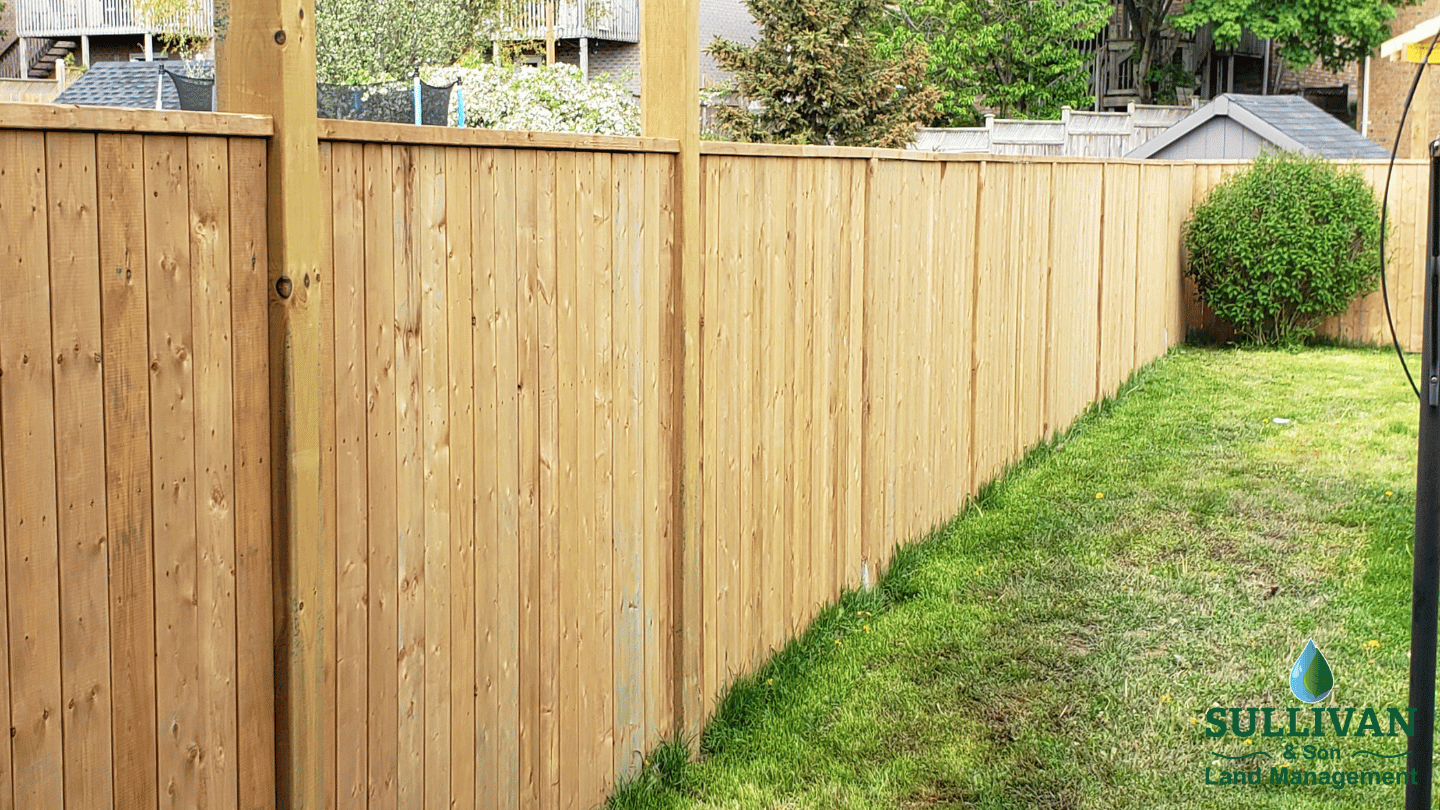You know that feeling when you're trying to relax on your deck with morning coffee, and you make awkward eye contact with your neighbor doing the exact same thing? Yeah, we get a lot of calls about that.
Privacy in Norwalk's suburbs isn't always a given. Homes sit close together, and even a generous backyard can feel a bit exposed when you're twenty feet from your neighbor's kitchen window. The right fencing or outdoor structure changes that completely—not just blocking sightlines, but creating an actual retreat where you can let the kids run wild, host friends without feeling like you're performing for the whole street, or just exist outside without an audience.
What Actually Works for Privacy
Wooden fencing remains the go-to for most Norwalk homeowners, and there's a reason for that. Cedar and pressure-treated pine both hold up well here, especially if you reseal them every few years. If you want zero gaps and maximum privacy, vertical board-on-board is your best bet—the boards overlap slightly, so even as the wood shrinks and shifts over time, you're not getting those annoying sightlines between pickets. We've installed plenty of six-foot cedar fences that completely transformed a backyard from "waving awkwardly at neighbors" to "didn't even realize the neighbors were home."
Vinyl's appeal is pretty straightforward: it looks like wood, acts like plastic, and you'll never spend a Saturday afternoon resealing it. It won't rot, bugs won't touch it, and Norwalk's freeze-thaw cycles don't phase it. The main trade-off is you're locked into whatever color you choose—can't stain or paint it later if you change your mind.
Metal fencing—wrought iron or aluminum—works beautifully if your priority is equal parts security and style, but it won't give you much privacy on its own. That said, we've paired metal fences with climbing hydrangeas or even a simple row of evergreen shrubs, and suddenly you've got privacy that doesn't feel like a fortress. One client on East Avenue went this route specifically because they wanted to keep the breeze flowing through but still screen out the street traffic.
Beyond the Fence Line
Privacy doesn't always mean building a wall around your entire yard. Sometimes the smartest move is a well-placed structure that blocks just what needs blocking.
Pergolas do double duty—they give you architectural interest and create a defined outdoor room without closing things off completely. Once you train climbing vines up and over the beams (clematis and wisteria both love our climate), you've got dappled shade and enough screening to feel tucked away without losing airflow or views. We built one last summer over a client's patio in Rowayton, and by the end of the season, it felt like a completely separate space from the rest of the yard.
Lattice panels are the budget-friendly workhorse of privacy screening. They're light, they let air and some light through, and you can attach them to an existing deck railing or use them as standalone dividers. They're also way faster to install than a full fence, which matters if you're trying to get privacy in place before a graduation party or wedding in your backyard.
Living privacy walls—hedges, ornamental grasses, even espaliered trees trained flat against a frame—take longer to establish but age better than anything else. A row of arborvitae or skip laurel planted six feet apart will fill in within three years and give you year-round screening that actually improves your property value. We've also done green walls paired with low stone or brick bases, which keeps things from feeling overgrown while still giving you that soft, natural barrier.
Timing It Right
Spring and early summer are ideal for fence installation—the ground's workable, and you're not racing against frozen soil or unpredictable storms. Fall's the sweet spot for planting privacy hedges, since roots establish over winter and you get strong growth come spring. And winter? That's when you should be checking wooden fences for rot, tightening hardware, and getting ahead of repairs before snow and ice do more damage.
Making It Fit Your Actual Life
Here's the thing: there's no universal answer. A family with young kids and a dog might need a fully enclosed yard with a solid six-foot fence. Someone who entertains a lot might prefer a pergola with strategic plantings that screen the hot tub but keep sightlines open to the garden. A couple in a more formal neighborhood might want something that adds privacy without looking like they're trying to disappear.
We've worked with enough Norwalk homeowners to know that the best privacy setup is the one that fits your property, your style, and how you actually use your yard. It shouldn't look like an afterthought or feel like you're living inside a box.
Your backyard should feel like yours. Not your neighbor's extended view, not a stage for the street—yours. The right fencing or structure makes that happen, and when it's done well, it doesn't just block things out. It invites you to actually use the space you've got.
If you're thinking about adding privacy to your yard, we're happy to walk the property with you and talk through what makes sense. No pressure, just practical advice from people who've done this a few hundred times.


.png)

